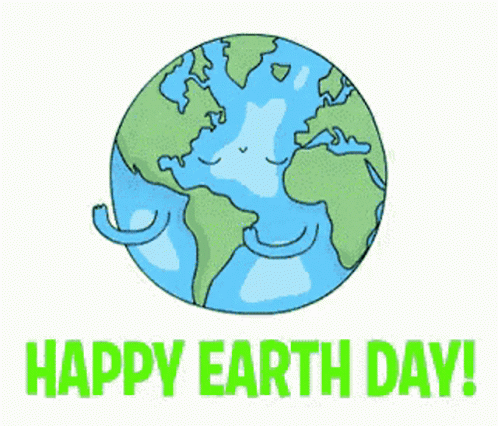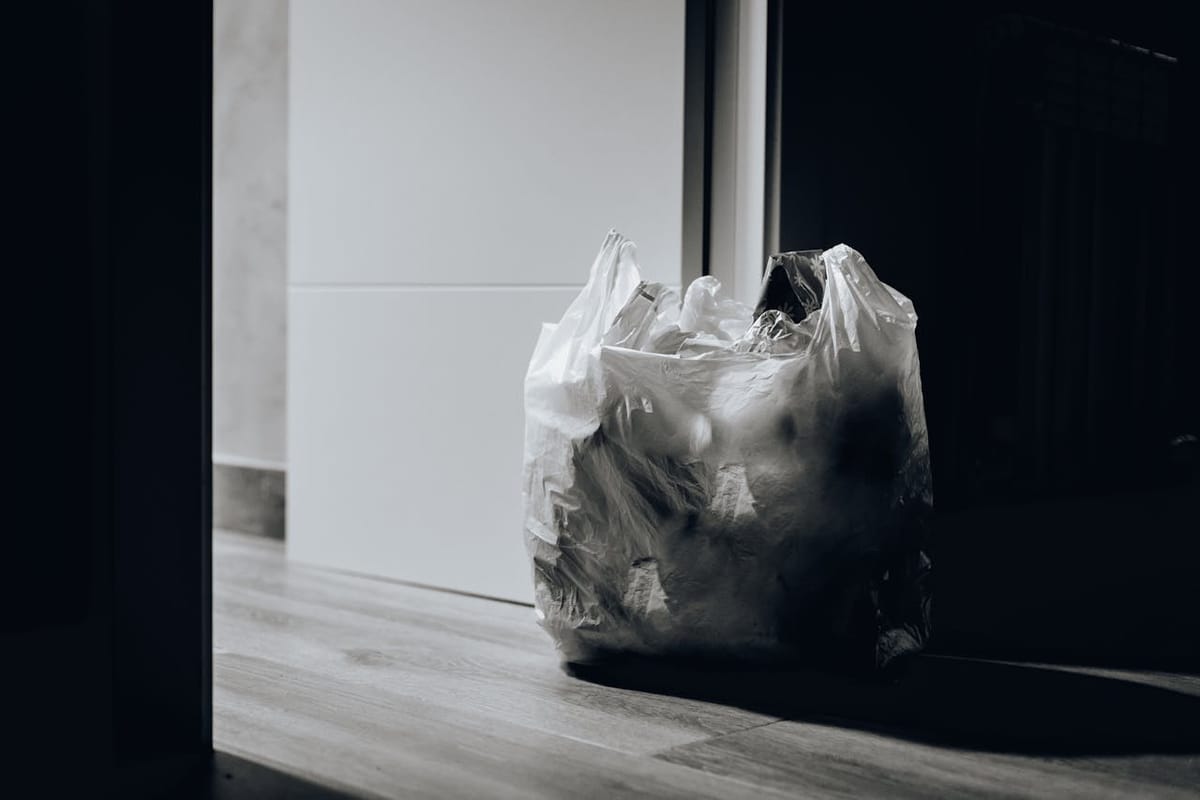All around the world, we’re seeing new laws and initiatives aimed at curbing our carbon footprint to tackle climate change, and Hong Kong is about to get on board in a big way, too.
❓What's going on?
All around the world, we’re seeing new laws and initiatives aimed at curbing our carbon footprint to tackle climate change, and Hong Kong is about to get on board in a big way, too.
On April 22 – Earth Day – the city is rolling out the first phase of its new single-use plastics ban that lawmakers passed last year. With that, your takeaway experience is about to look different – but it’s not just restaurants that have to adjust. The ban will affect a range of businesses, from F&B to the retail and hospitality sectors, and the rules cross over into any area where these throwaway plastics exist, like party supplies and even the free earplugs handed out on airplanes.

🇭🇰How bad is the plastic problem in Hong Kong?
Plastic is Hong Kong’s second-largest source of municipal solid waste (MSW). With around 11,000 tonnes of waste heading to landfills in the city each day, a whopping 21% of that is plastic.
That straw you grab for your iced latte and the cutlery you get with your takeout stick around long after you toss them in the bin. In fact, they’re more complicated to recycle than we previously thought, and studies have shown that recycling isn’t a viable answer to plastic waste. Plus, aside from piling up at landfills, plastics often pollute our rivers, lakes and oceans, harming plants and animals and even ending up in our own bodies through the form of microplastics.
As convenient as plastic is, it uses fossil fuels, which contributes to global warming. Today, making and disposing of plastics accounts for 3.4% of the world’s greenhouse gas emissions. On top of that, Hong Kong has limited space and the landfills are, well, pretty much full. So, something has to be done to curb waste output in the city.
Now, to top that all off, the Municipal Waste Charging Scheme will go into effect on August 1 of this year to try to curb the city's trash output. Municipal solid waste (MSW) is a major issue in Hong Kong, as the daily disposal of MSW per person reached about 1.53 kg in 2021, beating out other major cities and putting huge pressure on the city’s landfills. The scheme aims to help by incentivizing people and businesses to reduce their waste while also supporting sustainable initiatives and green industries. It’s one more step, alongside the single-use plastics ban, that the city is taking to tackle its trash problem.
🌱Why is this happening?
With the world seeing record temperatures in some places and an increase in natural disasters like wildfires and drought, it’s hard to ignore that we’re reaching a tipping point. Most scientists around the world agree that global warming is leading us into a climate crisis – and pollution and greenhouse gases are to blame. And by “we” and “us,” we mean, to different extents, literally everyone.
So, last March, the UN passed a historic resolution at the UN Environment Assembly to End Plastic Pollution. It aims to create a legally binding agreement between 175 nations by 2024 to address plastic pollution across its entire lifecycle, including production, design and disposal.
“Today marks a triumph by planet earth over single-use plastics. This is the most significant environmental multilateral deal since the Paris Accord. It is an insurance policy for this generation and future ones, so they may live with plastic and not be doomed by it.”
– Inger Andersen, Executive Director of UNEP.
Last October, Hong Kong’s Legislative Council passed the Product Eco-responsibility (Amendment) Bill 2023, which introduced new regulations on disposable plastic tableware and other common plastic products. The city has had the Product Eco-responsibility Ordinance (Cap. 603) since 2008, but these new measures (plus the MSW charging) will ramp up efforts to get the plastics and waste situation under control.
Hong Kong's surrounding neighbors are also on it as well. Mainland China recently phased out disposable plastics, and Macau has banned the import of polystyrene products since 2021 as well as throwaway plastic cutlery and straws. In 2002, Taiwan banned disposable plastic straws and tableware for the government, retail stores, catering and schools. And officials in Taiwan are looking to put a blanket ban in place by 2030.
🤔How will it work?
The ban is being rolled out in two phases, with the first set to kick off this upcoming Earth Day. The second phase will come into effect sometime in 2025, depending on “the availability and affordability of the relevant non-plastic or reusable alternatives.” You can read the government’s announcement of the ban here.

🚫What products are being banned?
Phase one will mean no more disposable tableware and cutlery, including straws, stirrers, plates, cups and plastic food containers, for dine-in or takeaway at restaurants. Those freebies you get at hotels, like free bottles of water, plastic-handled toothbrushes, shower caps, etc., will also be restricted. The idea is to ban items that have established non-plastic alternatives or are not necessities. That also means things like plastic party hats, umbrella bags – the lot.
Phase two will expand the measures to include more items, like plastic tablecloths and the free earplugs you get on flights, and apply to more businesses. This will all depend on what alternatives are available and how affordable they are, so the two-phase rollout is meant to give businesses time to adjust to the new rules. Some things will be exempt for now, like pre-packaged foods, like noodles or juice boxes, that already come with plastic.
💲How will it look for you?
It's not 100% clear yet, but let's say you're visiting your favorite restaurant or hotel past August 1 of this year. By then, the disposable plastic tableware ban and MSW Charging Scheme will have come into effect. While the disposal cost of the broccoli stem you leave behind on your plate or the beverage cartons you bin in your hotel room will largely be borne by the restaurant or hotel, it’s also likely that the cost will be included in your bill. As a hotel guest, you may even be instructed to separate the different types of waste you generate during your stay to comply with the MSW Charging Scheme.

👩⚖️How will it be enforced?
The law doesn’t apply to the public, but businesses will be penalized for breaking the rules. If caught, they’ll receive a penalty notice, giving them the chance to rectify the situation and pay a fine of HK$2,000 (US$255) within 21 days. Outside of that, those found to be not complying with the regulations can end up slapped with a fine of up to HK$100,000 (US$12,762).
👨💼👩🔧How will businesses adapt?
The government has allowed some time for businesses to make the switch and adjust to these new regulations, although some are saying that it’s still a challenge. Hong Kong has set up the Green Tableware platform as a resource for finding viable plastic alternatives to the products being banned. Already, more than 400 non-plastic disposable tableware products are listed on the platform.
Plenty of companies in Hong Kong have already been working to develop high-quality plastic alternatives, like Sustainabl Planet and Beyond Plastic. Businesses could also incentivize customers to bring their own cups, plates and cutlery from home through loyalty programs or discounts. Groups like the Sustainable Restaurant Association have developed guides with ideas for plastic alternatives and steps businesses can take to adjust to this new reality. There are also some reuse and return programs being piloted across the city, where people can easily borrow and return reusable food containers.
🎙What are people saying?
“We encourage the trade to get prepared early for the relevant control measures and jointly build a plastic-free culture."
– A spokesperson for the Environment and Ecology Bureau
“We are fortunate in the sense that, around 2019, even before COVID, we already pledged to eliminate single-use plastics across our operations as a group effort. Now five years out, for the second year we are reporting a 99% confidence in our single-use plastic elimination efforts. So when the government announced the disposable plastic tableware ban, we were quite calm, because we were already ahead in many ways."
– Iris Lam, Director of Sustainability, Global Development at Mandarin Oriental Hotel Group, verified by a third party for its sustainability efforts
“Most of the alternatives being adopted are fibre-based (paper/bagasse etc) or interesting new ‘bio-plastics’ which I really don’t think are much better than oil-based plastics. There’s a lot of green claims out there such as ‘bio-plastic,’ ‘compostable’ and ‘water-soluble lining’ that is really making it challenging to know what is the correct choice. There really needs to be regulated terminology around these products in order to avoid F&B outlets being victims of greenwashing sales tactics. Some proactive property management and chain F&B brands are proactively exploring reuse and return systems, which is great, and ultimately the way we need to be going if waste reduction is the end goal.”
-Tim Parker, founder of Circular City
“The lack of suitable alternatives in the market is the biggest challenge for not just our hotels, but the industry as a whole. To date, our hotels have made switches to almost all our takeaway items except soup bowls, the one item that the hospitality industry has yet to find a suitable alternative for.”
– Cluster ESG Manager for Hyatt Hotels in Hong Kong and Macau, Samantha de Mello
“Our environmental situation is … shocking. We separate the rubbish, but in the end it just gets thrown into one big bundle. The most important part is the source. If you cut the single-use plastics off at the production end, then that’s the most surefire way of really making sure it doesn’t end up where it’s not supposed to be. There will be friction at the start, like any drastic change. But if the people and business owners have the perseverance to push on, then life would be better.”
- Adrian Yung, an environmental science major from the University of Hong Kong
"Shifting to more environmentally-friendly materials may initially come with cost implications, but as more brands adopt these materials, economies of scale will drive down costs over time. Additionally, implementing improvements in the production process or packaging does not necessarily mean higher expenses. For example, leveraging advanced technology like AI-powered planning and forecast tools to minimise unnecessary shipping and excessive stock or SKUs can lead to significant cost savings. Taking a comprehensive approach to reviewing the entire production cycle to minimise waste and optimising packaging range and composition can also result in long-term cost reductions."
- Robert Lockyer, Founder & Chief Client Officer of Delta Global (Click here for a full Q&A with Lockyer)





Comments ()